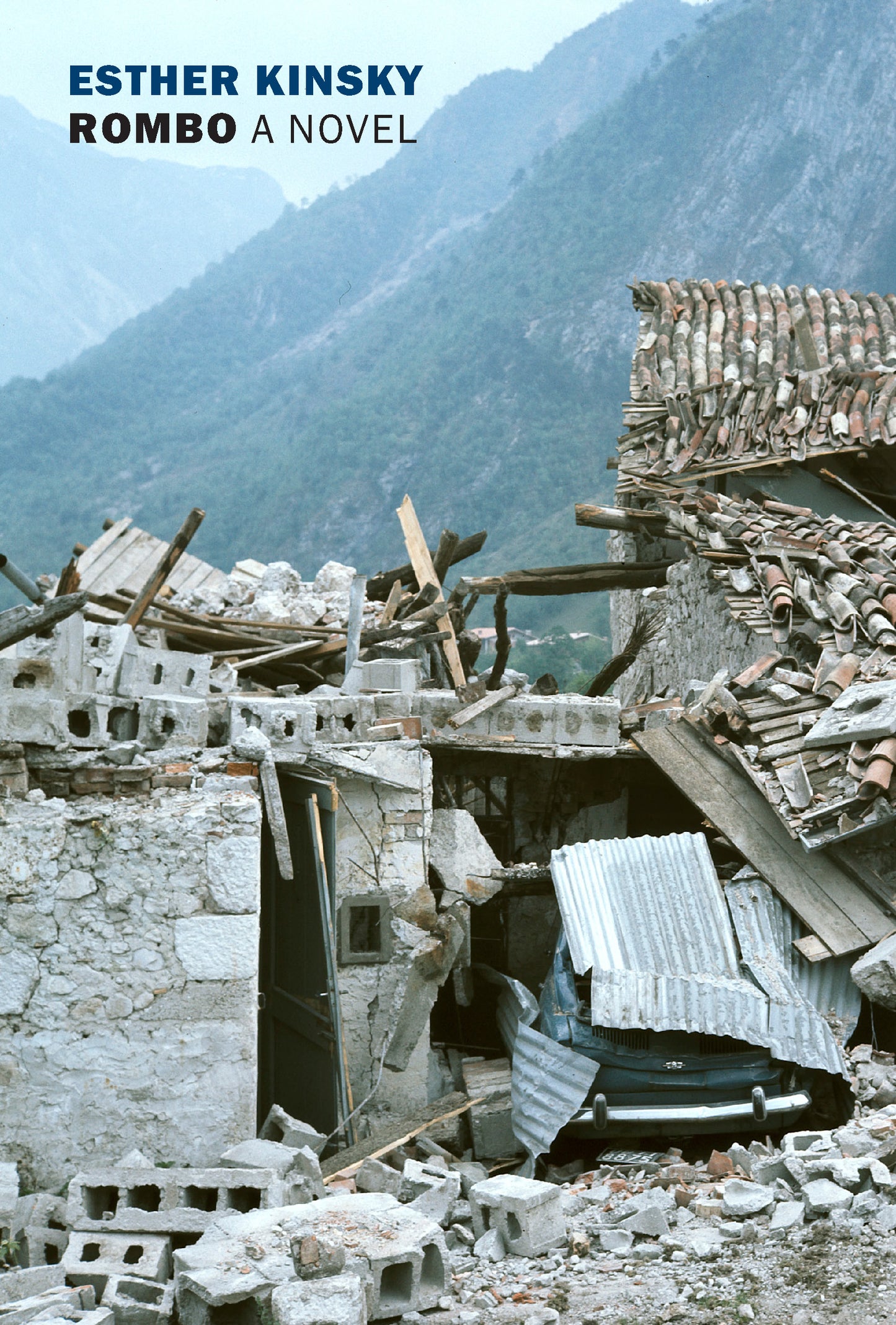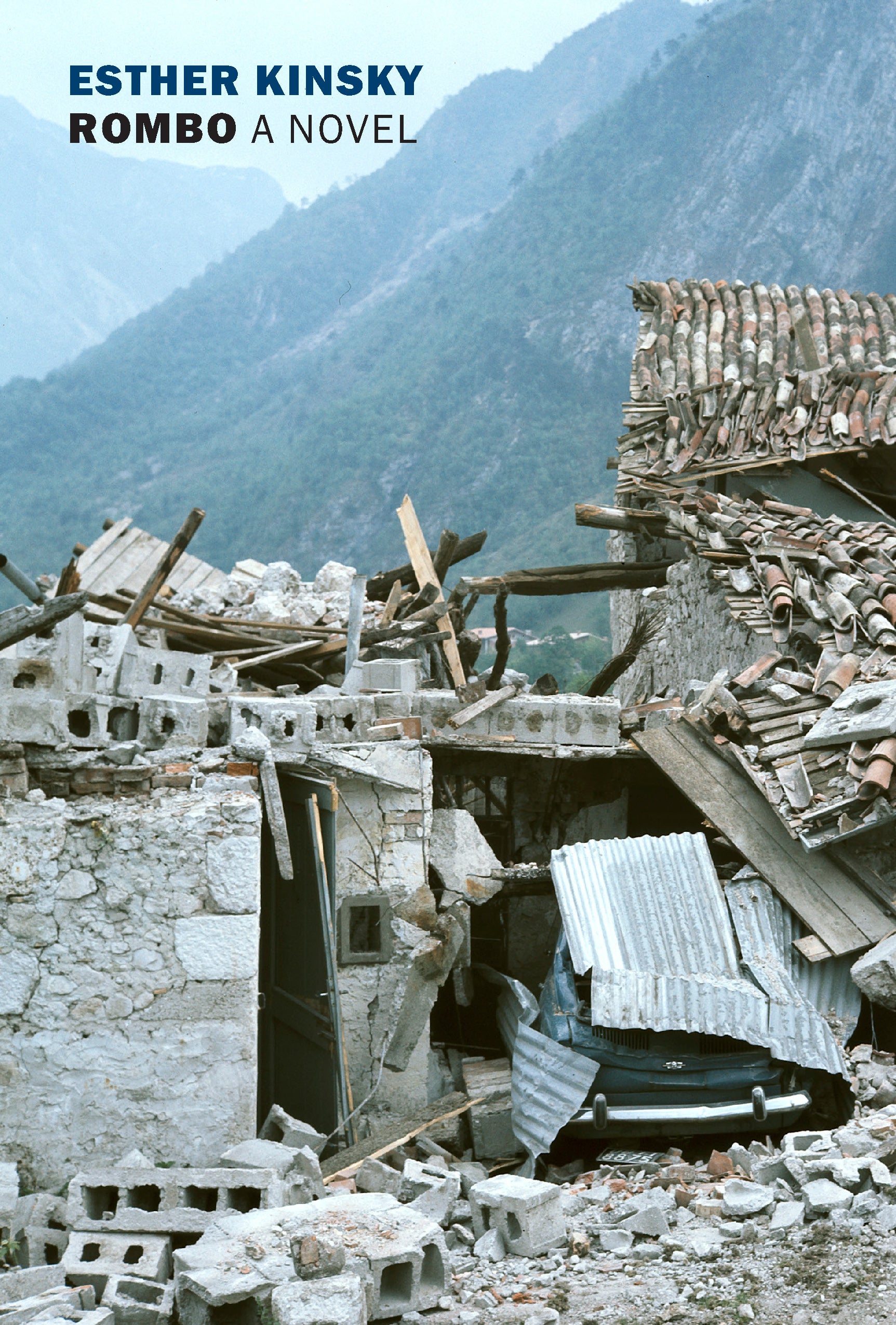Rombo’s fractured chorus of voices dramatizes the ruptures created by the trauma of the earthquake. Together, the eyewitness accounts produce a kind of shifting mosaic – one might call it ‘rubble narration’ – which tries to convey the catastrophe, and the community it destroyed, while stranded irredeemably in the aftermath... For Kinsky, nature ultimately provides no escape from loss, no solace or release from human tragedy (it is sometimes, as with the earthquake, the cause of it). What it may offer, however, is the possibility of coming to terms with this absence-filled world.
—Andrew Wells, New Left Review
Rombo is at once similar to and very different from Kinsky’s earlier works. It retains a deep attachment to the importance of landscape, self, and memory, and pieces together a narrative spread across time and place, but also lends itself to an established tradition in European literature—novelized history writing, a fictionalized biography, presented as testimony, and seeking to refract history into the minutiae of daily life... in collating this polyphonic account of landscape and language, Kinsky illustrates the difficult navigation of that senseless new order, in a land as inconstant as limestone, where the jagged mountains rise up and up on all sides.
—Aditya Narayan Sharma, Los Angeles Review of Books
A lyrical, meticulous inquiry into the alchemy of memory.
—Kirkus Reviews
Written in the form of a travelogue, this fictional narrative—named for the Italian word for 'rumble'—records the memories of survivors of two earthquakes that devastated the Friuli region of Italy in the nineteen-seventies. Kinsky threads their stories with descriptions of native flora. . . . While the narrator offers insights about collective trauma and the transformative impact of nature’s whims on one’s sense of home, the book is filled with the voices of the landscape’s inhabitants.
— The New Yorker
A chorus of seven villagers narrate the novel from a vantage point close to the present day . . . . Kinsky is also a poet, and she has a poet’s ear for rhythm and precision, elegantly rendered in Caroline Schmidt’s translation. The author has a great gift for describing landscape.
—Charlie Lee, TLS
It reads cinematically; the cuts are determined and stylistic. . . .The book excels when it manages to balance the grand geology of its subject matter on the tiny gestures of daily life. . . . Rombo is staggering. There is something epic about it.
—Magnus Rena, Review 31
Kinsky expertly animates the natural world around her while removing her human hand. . . . If trauma is the inability to redescribe, Rombo offers a powerful antidote in language and the infinite possibilities of description.
—Matthew Janney, Financial Times
Esther Kinsky has more eyes than most; in her novel Rombo she evokes the entire life of an Italian village before, during, and after the two devastating earthquakes of 1976, but each plant and animal central to the village is also a character, and the most important character of all is the landscape itself. The book becomes as much about the futures as the past, for our natural disasters are increasingly man-made, and we need more than ever this reminder of universal impermanence and the marks of memory we leave in its wake.
—Mary Ruefle
A tragic travelogue to the underworld-turned-world that recasts a newly lost Italian past with a climate-wise chorus straight out of the most harrowing Greek drama.
—Joshua Cohen
In Esther Kinsky’s new novel language becomes the highest form of compassion and solidarity — not only with us human beings, but with the whole world, organic, non-organic, speaking out with many mouths and living voices. A miracle of a book; should be shining when it gets dark.
—Maria Stepanova






